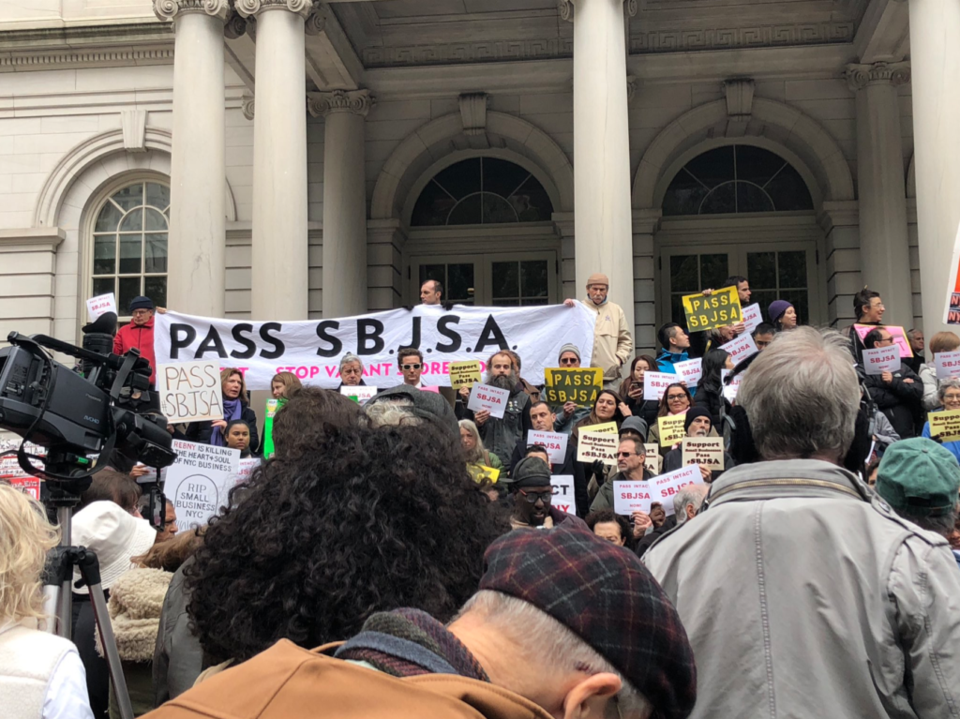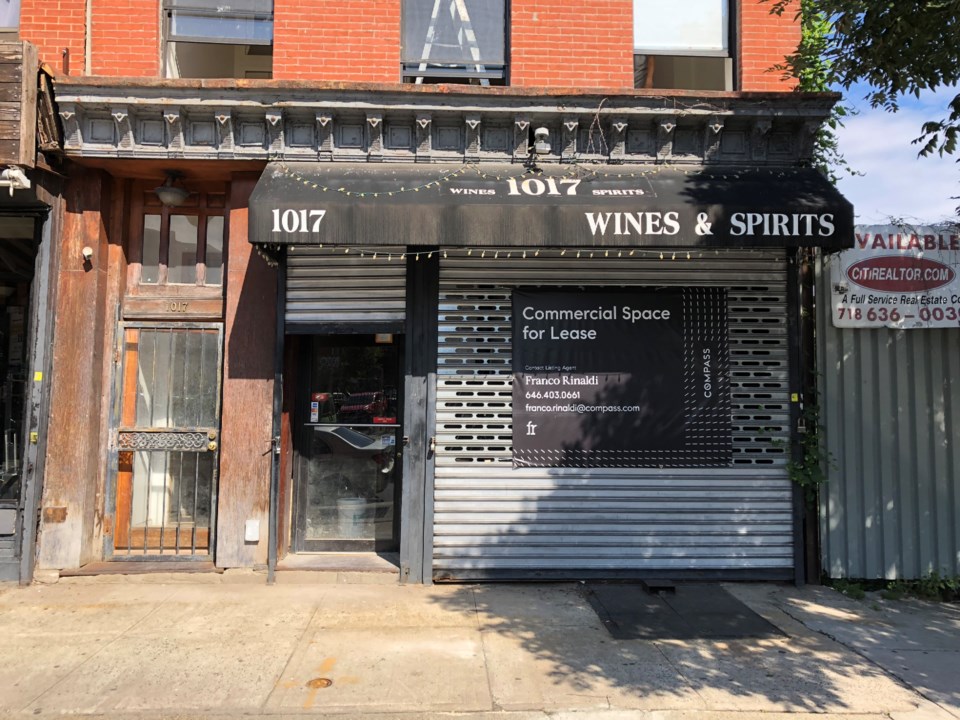As advocacy groups are sounding the alarm on NYC's growing number of empty storefronts, Councilmembers Ydanis Rodriguez and Rafael Espinal, among others, have introduced legislation that aims to address commercial vacancies and the shuttering of small businesses by boosting tenants' protection and curbing real estate speculation and rent hikes.
The Small Business Job Survival Act (SBJSA), would give commercial tenants three specific rights: A minimum 10-year lease with the right to renewal, equal negotiation terms when renewing their lease and restrictions to prevent landlords from passing their property taxes on to small business owners.

Espinal said the legislation will empower small businesses in Brooklyn and across the city.
"Central Brooklyn has become a popular business hub and we need to ensure that we are preserving the vitality of our business community for years to come," said Espinal. "SBJSA will allow small businesses in Brooklyn and throughout the city to negotiate leases that work best for them."
Rodriguez called the legislation "a bill of rights for commercial tenants."
"It will address the large numbers of storefront vacancies that hurt our communities, give property owners clarity in fair lease negotiations and help create a healthy business environment in NYC," he said.
The council's Committee on Small Business is currently reviewing the supportive and opposing testimonies that were made during a public hearing on October 22, according to Council Speaker Corey Johnson's office.
"We will be discussing with advocates the complexities of the bill," said a spokesperson for Johnson. "A wide array of stakeholders gave helpful feedback on the legislation. Speaker Johnson is committed to working through the complex issues to pass meaningful legislation to help small businesses."

But the proposed bill has proved controversial and one of its most vocal critics is The Real Estate Board of New York (REBNY).
"This bill is illegal and ignores market conditions," said John H. Banks, REBNY president. "The council should focus its limited time, energy and resources on solutions that will support small businesses instead of wasting millions of tax dollars defending an illegal bill."
When asked to clarify the claim that the bill is illegal, REBNY pointed to the testimony of Steven Kirkpatrick of the Real Property Law Committee, which was presented at October's hearing.
"The committee has concluded that the City Council is not authorized to enact this legislation. It is equivalent to rent control as it limits a landlord's rights with regard to use and occupancy of his or her commercial space," stated Kirkpatrick. "In its common definition, rent control is a statutory scheme."
But David Eisenbach, activist and founder of the advocacy group Friends of SBJSA, said REBNY's opposition to the bill comes out of fear.

"REBNY knows the fight for SBJSA will be a turning point," said Eisenbach. "It would be the first major loss for them ever because it will prevent the rampant real estate speculation that incentivizes landlords to not rent storefronts. It will mean they make less money."
The City Council is expected to vote on the bill by late 2018 or early 2019.




